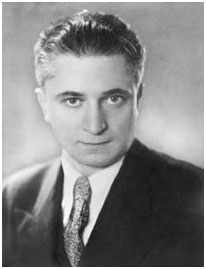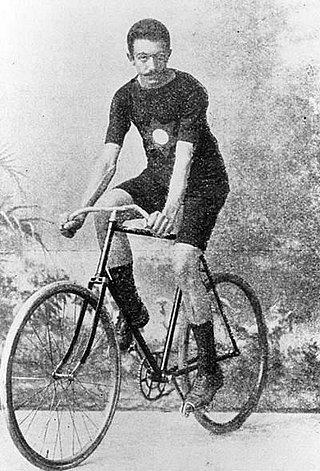Related Research Articles

The 1900 Summer Olympics were held as part of the 1900 World's Fair, during which many cycling events were contested. The IOC website currently affirms a total of 3 medal events, after accepting, as it appears, the recommendation of Olympic historian Bill Mallon regarding events that should be considered "Olympic". These additional events include the men's points race. Thus, three cycling events are considered Olympic events. These three competitions were held between 9 September and 16 September 1900. The cycling part of the World's Fair included 250 competitors, 160 of them French. In the sprint and 25 km events, 72 competitors, all men, from seven nations competed.

Fernand Paul Achille Braudel was a French historian. His scholarship focused on three main projects: The Mediterranean, Civilization and Capitalism (1955–79), and the unfinished Identity of France (1970–85). He was a member of the Annales School of French historiography and social history in the 1950s and 1960s.

France competed at the 1936 Summer Olympics in Berlin, Germany. 201 competitors, 190 men and 11 women, took part in 100 events in 18 sports.

Ernest Henri Besnier was a French dermatologist and medical director of the Hôpital Saint-Louis in Paris.
The lanterne rouge is the competitor in last place in the Tour de France. The phrase comes from the French for "Red Lantern" and refers to the red lantern hung on the rear vehicle of a passenger railway train or the brake van of a freight train, which signalmen would look for in order to make sure none of the couplings had become disconnected.

Fernando "Fernand" Sanz y Martínez de Arizala was a Spanish-born naturalized French racing cyclist, younger of two illegitimate sons of King Alfonso XII of Spain and his mistress, Elena Sanz. He participated in cycling at the 1900 Summer Olympics in Paris for France, and there won the silver medal in the men's sprint.
Fernand is a masculine given name of French origin. The feminine form is Fernande.
Fernand Alphonse Marie Frédéric de Montigny was a Belgian fencer and hockey player. He won two silver medals and two bronze in fencing and a bronze in hockey. He was also the architect of the 1920 Olympic Stadium.
Emmanuel Besnier is a French heir and billionaire businessman. He is the chief executive officer (CEO) of Lactalis.
Charles Coste is a French cyclist. He was born in Ollioules. He won a gold medal in the team pursuit at the 1948 Summer Olympics in London, together with Fernand Decanali, Pierre Adam and Serge Blusson. He finished in fourth place in the 1950 Paris–Roubaix.
Pierre Louis Eugène Adam was a French cyclist. He was born in Paris. He won a gold medal in the team pursuit at the 1948 Summer Olympics in London, together with Fernand Decanali, Charles Coste and Serge Blusson.
Fernand Decanali was a French cyclist. He was born in Marseille. He won a gold medal in the team pursuit at the 1948 Summer Olympics in London, together with Pierre Adam, Charles Coste and Serge Blusson.
Serge Blusson was a French cyclist. He was born in Paris. He won a gold medal in the team pursuit at the 1948 Summer Olympics in London, together with Pierre Adam, Charles Coste and Fernand Decanali. He finished in fifth place in the 1954 Paris–Roubaix.

Fernand Saivé was a Belgian cyclist. He competed in three events at the 1924 Summer Olympics winning a silver medal in the men's team trial and a bronze in the men's team pursuit.
Fernand Picot was a French professional racing cyclist. He rode in eight editions of the Tour de France.
The French Federation of Book Workers was a trade union representing printing workers in France.
Fernand Fayolle was a French racing cyclist. He rode in the 1928 Tour de France.
Fernand Robache was a French racing cyclist. He rode in the 1930 Tour de France.

The road race is one of two road bicycle racing events held at the Summer Olympics, the other being the time trial. The road race is a mass start, distinguished from the separate starts of the time trial. The men's road race was first held at the 1896, was not held again for 40 years, then has been held every Summer Games since the 1936 Summer Olympics. The women's event was first contested at the 1984 Summer Olympics, being the first women's cycling event.
Mathilde Hupin-Debeurme is a Canadian orthopaedic surgeon and former cyclist who competed in cross-country, mountain, road, and track events. She had competed in national and international cycling such as the Canada Summer Games, the UCI Mountain Bike & Trials World Championships, the La Coupe du Monde Cycliste Féminine de Montréal, the Tour du Grand Montréal and the Summer Paralympic Games. Hupin won a bronze medal in the Women's Road Individual Road Race in the B VI 1–3 as part of the Canadian delegation at the 2008 Beijing Summer Paralympics, acting as the visual guide for the blind cyclist Genevieve Ouellet. She works as an orthopaedic surgeon at the Centre hospitalier universitaire Sainte-Justine and is a professor at the Université de Montréal Faculty of Medicine.
References
- ↑ "Fernand Besnier". Cycling Archives. Retrieved 21 April 2014.
- ↑ "Fernand Besnier". ProCyclingStats. Retrieved 21 April 2014.